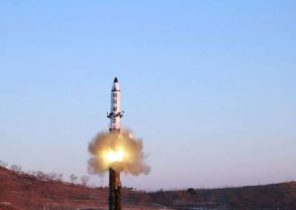
This year’s elections should take place in France, Germany, Holland, Czech Republic and possibly Italy. The intelligence services of Europe anxiously talking about Russian attempts to influence the outcome of the elections using a targeted misinformation and propaganda, as happened in the case of elections in the United States.
Information warfare can include both the dissemination of false news and conspiracy theories and the incitement of the already existing problems — all in order to undermine public confidence in the government and state institutions. In the Baltic States and former Soviet republics Russian disinformation contributed to the panic and forced the local government to adopt counter-productive and predictable solutions, which only contributed to the expansion objectives of the Kremlin in this region.
However, despite the increasing pressure, one of Russia’s neighbors unexpectedly showed a striking ability to resist large-scale information war that Moscow is in Europe. We are talking about Finland.
Like other countries of the Baltic region or Eastern Europe, Finland was faced with a significant increase in the flow of distorted information in the news and the amount of propaganda against it. The purpose of these attacks is to undermine confidence in the government, and they often coincide with a demonstration of military forces on the Russian border.
Unlike their neighbors, in Helsinki there are ways for effective resistance to any attack information with the neighbor to the East. The civil servants of the Finnish believe that a strong public education system, the experience of the neighbourhood with Russia and elaborated the government strategy intended to reflect coordinated propaganda and disinformation.
“The best way to answer is not the correct information and presence of own version and their commitment to it,” − said jed Willard (Jed.), Director of the Center for global engagement of Franklin Roosevelt. Willard, who now works for the Swedish government, helped the Finnish civil servants in public diplomacy for understanding the spread of false information and finding methods to combat propaganda.
This initiative started from the top. In October 2015, the President of Finland Sauli Niinistö (Sauli Niinistö) took the first step in this direction, recognizing that the problem of information warfare in Finland does exist, and every citizen is obliged to deal with it. In January 2016, the Prime Minister’s office has created a group of 100 civil servants from different ministries to study the problem of disinformation in the country according to the advice of Willard.
Finland is a homogeneous country with a population of 5.4 million people, regularly occupies the top rung of the ratings of quality of life, which is the Organization for economic cooperation and development. In addition, according to the world economic forum, the country’s education system is the best in the world.
Willard says that the combination of the ability of Finns to think critically and coherent dialogue with government is an important component to protect against attempts to distort facts and undermine trust in state institutions.
“This is real. Real as real war, says Willard. — The Finns, however, very quickly realized this and decided to approach the problem”.
Nyberg, Rene (René Nyberg), former Ambassador of Finland to Russia, says that Finland has advantages in the matter of reflection of attacks of the Russian disinformation. Helsinki has a great experience in relations with Russia. She’s been through war and annexation, and recently − and after the cold war. Finland soberly assess the real motives of the Kremlin. Besides, Finland is not the main goal of Russia in destruction of the integrity of Europe.
“The really big pressure on Germany… Merkel is the main dish, — said Nyberg Foreign Policy. We just garnish”.
“Lisa F.” is often cited as an example of modern educational opportunities of Moscow in information warfare. Russian media even before the official sources were able to verify the information, said 13-year-old Russian German woman was raped by migrants in Berlin. These reports of Russia was then considered the leading mass media of Germany and other countries. When the story was debunked, the “First channel”, the main state TV channel Russia, accused Berlin of concealing information, and the Minister of foreign Affairs Sergey Lavrov during the press conference, said that the news “has long disappeared for some reason.” Spreading false information has sparked protests across the country among the Russian Germans and opponents of the migrants.
According to experts, to determine how these Pro-Russian statements are formed by the Kremlin, is almost impossible. For maximum effect, Moscow does not promote false information, and incite the already existing problems, publishing in the Internet popular stories that later appear in local sources and social networks.
The transformation of information into a weapon long ago in Russia of a serious nature, and the Kremlin conducted an extensive operation to split the West even during the Soviet period. In the era of social media when news can spread quickly around the world, Russia has deployed its Arsenal trolls, propaganda and fake information to hone your technique in the last decade. These actions were enshrined in official doctrine of the Kremlin.
However, such actions of Russia may have negative consequences and create a Pro-Kremlin rhetoric. Estonia, Latvia and Lithuania, as former Soviet republics, such as Ukraine and Georgia, have been less successful in the fight against Russian disinformation.
Pro-Russian media, including state “the First channel” have a large audience in the former republics of the Soviet Union. In the Baltic States with large Russian-speaking minorities attempt to restrict or prohibit the activities of Russian TV channels, websites or journalists often do not coincide with the position of the local Russian society. In addition, the Russian propaganda often aggravates and distorts the problem in these countries, public corruption, to destroy the position of Pro-Western parties.
For contrast, in Finland, which, according to the international organization for the fight against corruption Transparency International, ranked third in the level of absence of corruption and has a small Russian-speaking minority, such problems are much less. In March 2016 the Finnish page Sputnik, funded by the state, was closed due to the fact that are unable to recruit a sufficient number of readers.
“There is nothing especially dangerous for the Finnish audience there, says Markku has Mantila (Markku Mantila). — The Finns have a good education, and in this regard they are very resistant to such impact.”
However, in Finland, there’s something very important for the Kremlin: the Russian border with a length of 1300 kilometers. Fear of NATO expansion to the East, including Finland, are behind the aggressive posturing of Russia towards the West.
Civil servants Finland claim to have recorded 20 cases of misinformation against his country, which came from the Kremlin. These attempts focus on a narrow but fairly sensitive topic: the carefully constructed relations between Helsinki and Moscow.
After two wars in the 1940s, during the cold war, Finland maintained a position of neutrality, which allows it to simultaneously integrate into Europe and to maintain relations with the Soviet giant in the neighborhood. The country refrained from joining NATO and is often admired by Moscow to preserve its independence, a position some detractors denounced as very accommodating to the Soviet Union. The participants of the cold war, even derisively called it “Finlandization”.
After the collapse of the Soviet Union in 1991, Helsinki quickly departed from its policy during the cold war, but politicians are still walking on a thin blade of relations with Russia.
The question of the necessity of NATO membership among the Finns there is no unity. This makes Finland an important goal for Russia as it seeks to influence the opinions of their neighbors and create a split in Europe.
The Russian disinformation campaign launched a discussion about the fact that the government of Finland deals with discrimination of ethnic Russians. In February, reports of persons with the nationality of Finland and Russia, which denied access to military service and international posts, became a popular theme in Pro-Kremlin media in Russia. Discussion in the Finnish Parliament to the creation of obstacles for the citizens of Russia to the purchase of areas near military installations also launched the Kremlin propaganda machine. Similar ways, this time with fake photos, reported on allegations of Finnish officials in the removal of children from Russian families. Allegations that Finnish officials deny, was first recorded in 2012, but such cases continue to happen again — and Russian lawmakers have more opportunities to make provocative statements about his neighbor.
“It’s not just about the relations of Finland and Russia, says Saara Jantunen (Jantunen Saara), the author of “Information warfare” (Info-War) about the misinformation of Russia in Finland. — This is more about what arguments are acceptable in the Finnish society and the media.”
One notable aspect of the approach of the Kremlin in relation to other countries in Europe — support forces who are anti-establishment and often copy the Pro-Russian position. Similar happens in the case of Jessicas Aro (Aro Jessikka), journalist of the Department of social relations of Finnish public broadcasting company Yle.
In 2014 Aro prepared several reports about the Russian “Troll factory” in St.-Petersburg, which tried to influence public opinion in the West against the maneuvers of the Kremlin in other countries. After she published a study in which it was reported as Pro-Russian leaders were trying to shape public opinion on the subject of Ukraine, her name appeared on Russian nationalist websites, where it was exhibited as a Western spy. Social networks Aro was sabudana anonymous messages with threats and received the label of drug dealer.
People talk about arc most actively — Johan Backman (Johan Backman). A supporter of the Kremlin, fluently speaking Russian, Finn Beckman was the author of the mocking comments about Aro. Beckman is the representative of RISS (Russian Institute for Strategic Studies) in Northern Europe. He defended the rightness of their review, with an emphasis on freedom of speech.
Newspaper MV, Finnish news page with the foreign domain, known for its anti-immigrant and anti-EU views, has also published false information about the Aro. Yanichkin Ilya (Ilja Janitskin), founder of the news website, and his supervisor living in Spain, told the newspaper The New York Times in 2016 that he has no ties with Moscow. However, both men are now under police surveillance because of the insults and rhetoric of hatred against Aro.
Finnish authorities are trying to extradite Yanichkina from Spain, but now he is on the run.
In addition to everything else, the police Department of Helsinki announced in October 2016, which the employee Yle, the Finnish broadcasting company, which operates Aro, is suspected of providing information that was later used to vilify her. This should later be reviewed in court.
Aro told Foreign Policy that it became a target due to the fact that her stories have questioned the relationship of Helsinki and Moscow.
“NATO is the center of everything, says Aro. — The aim of these campaigns is to discredit, in Finland those people who are critical towards Russia.”







